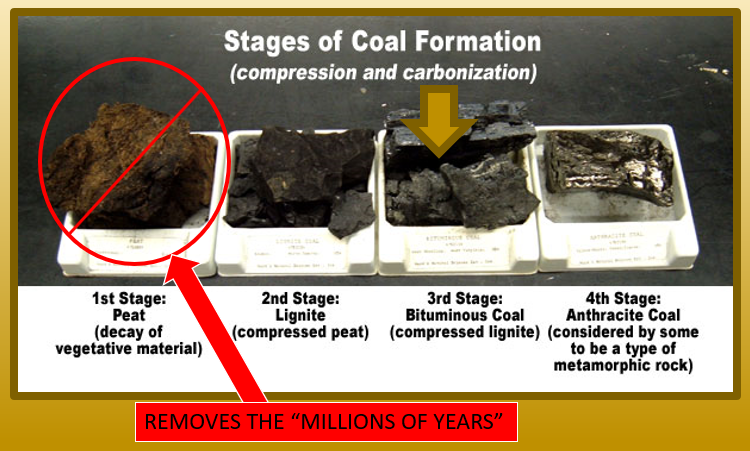Coal is thought to take some 300 million years to form, identified as this age based on being found in the Carboninferous ‘time’ period.
However, chemists at Argonne National Laboratory have succeeded in making a type of artificial coal from naturally occurring materials. The process is much less severe than formerly thought to be necessary and provides some new insights into coal structure and how to alter it. The most widely held view of natural coalification—the sum of the geological processes that produced coal—is that organic plant material was transformed microbially to humic materials. These, in turn, were transformed by abiotic thermal processes to lignite, bituminous coal, and anthracite. This theory does not hold water considering Argonne’s investigation of coal structure. In fact, as appealing as this view may be (to evolutionary theorists of millions of years), it is no more firmly based than other views.
In fact, the scientist maintains, “there is no incontrovertible evidence to support any particular theory of coalification”.

Scientists at Argonne National Lab have determined these stages to be untrue; coal can be formed quickly under the right conditions without the requirement of decay.
http://pubs.acs.org/doi/abs/10.1021/cen-v061n047.p042
https://www.tes.com/lessons/yYUrNsuTi7IA8w/coal-formation
https://www.quora.com/Is-it-possible-to-produce-coal-in-an-artificial-environment
https://www.nationalgeographic.org/encyclopedia/coal/

https://preachrr.wordpress.com/2010/11/17/rapid-coal-formation/

https://preachrr.wordpress.com/2010/11/17/rapid-coal-formation/


